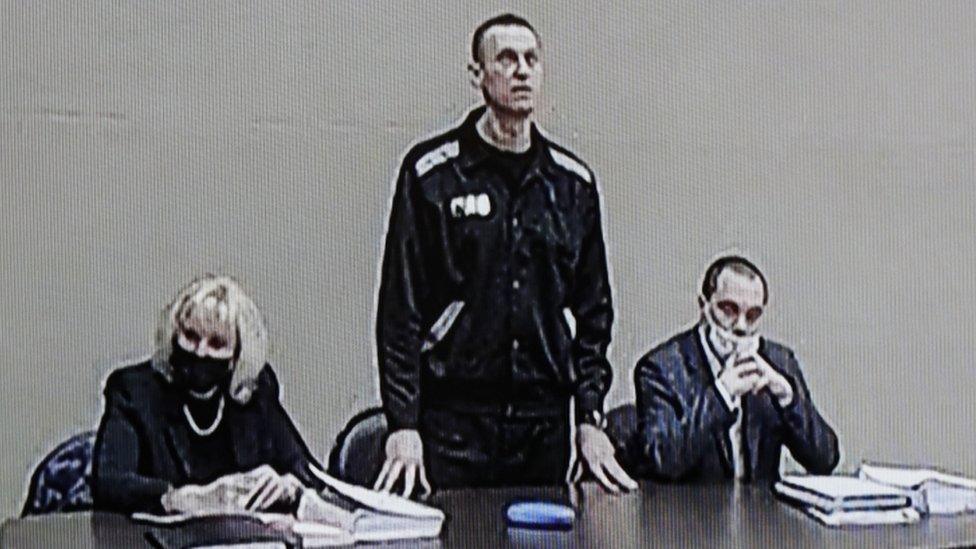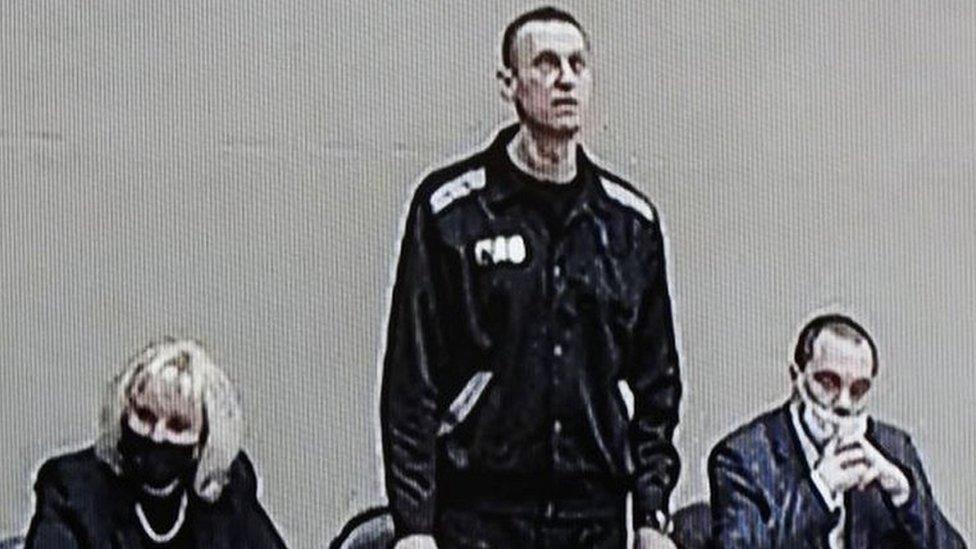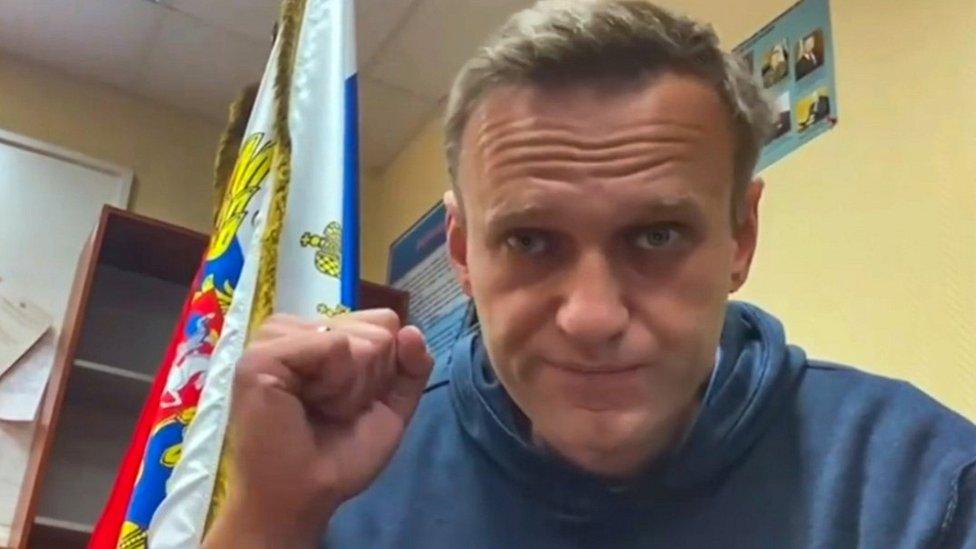Russia Navalny: Putin critic given nine-year jail sentence in trial branded 'sham'
- Published

Navalny stood in the makeshift court in Pokrov jail as the verdict was read out
Russia's most prominent opposition figure Alexei Navalny has been given nine years in a "strict regime penal colony" in a fraud case rejected by supporters as fabricated.
Navalny was detained when he returned to Russia last year, after surviving a poisoning he blamed on the Kremlin.
He is already serving three and a half years in jail for breaking bail conditions while in hospital.
A judge has now found him guilty of fraud and contempt of court.
Prosecutors accused him of stealing $4.7m (£3.5m) of donations given to his now banned organisations, including his anti-corruption foundation.
Delivering her verdict, Judge Margarita Kotova said Navalny had carried out "the theft of property by an organised group".
The new sentence replaces his earlier jail term, so the opposition leader will now have to serve some seven years in a maximum-security prison, with much stricter conditions and far more remote than the jail in Pokrov east of Moscow where he has spent more than a year.
A visibly gaunt Navalny folded his arms and exchanged comments with his lawyer as the ruling was read out.
Accusing the authorities of jamming his "last word" in court, he tweeted that he and his supporters would continue to fight censorship to "bring the truth to the people of Russia".
Allow X content?
This article contains content provided by X. We ask for your permission before anything is loaded, as they may be using cookies and other technologies. You may want to read X’s cookie policy, external and privacy policy, external before accepting. To view this content choose ‘accept and continue’.

Shortly after the sentence was announced, Navalny's lawyers were bundled into a police bus and briefly detained.

No room for dissent in Putin's Russia

This verdict will not come as a surprise to those who have watched Alexei Navalny's case.
His FBK anti-corruption foundation was declared extremist, he was poisoned and he was already imprisoned. Now he faces being barred from public life for almost a decade.
Despite being behind bars, he has called for protests against what Russia calls its special military operation in Ukraine. His supporters now fear that as a result, he might be placed in a maximum security prison as well as receiving an increased sentence.
Russia's crackdown on any platform that contradicts the Kremlin's line continues.
Meta, the company that owns Instagram and Facebook, has been declared an extremist organisation; more media outlets are regularly blocked and a new law that can lead to up to 15 years in jail for anything the authorities consider to be fake news about the military has led many independent journalists to leave the country.
There is no space for dissent against President Putin in today's Russia.

The trial was held at the penal colony in Pokrov where Navalny was sent last year after being jailed for failing to observe bail conditions, while he was being given life-saving treatment in Berlin for the August 2020 nerve agent attack.
The Kremlin denies any involvement in poisoning Navalny, who has become President Vladimir Putin's fiercest domestic critic.
Navalny's spokeswoman Kira Yarmysh said that while the attention of the world was focused on Ukraine, "another monstrous crime was being committed inside of Russia". His colleagues alleged that the judge had discussed the trial with the Kremlin in recent weeks.
Ms Yarmysh said it was not just his freedom that was at stake but his life as well, because his accusers had already tried to kill him in Siberia.
The trial has been dismissed as a sham by Amnesty International - words echoed by the US, which added it was the latest move in a series of attempts by Russia to silence Navalny.
The European Union also condemned the ruling, which it described as "politically motivated", and called for Navalny's immediate release.
Navalny's top aide, Leonid Volkov, said President Putin had come up with many plans, including the capture of Kyiv in 96 hours, and his plans always ended in failure: "So it will be with these nine years."
Related topics
- Published16 February 2022

- Published16 February 2024
